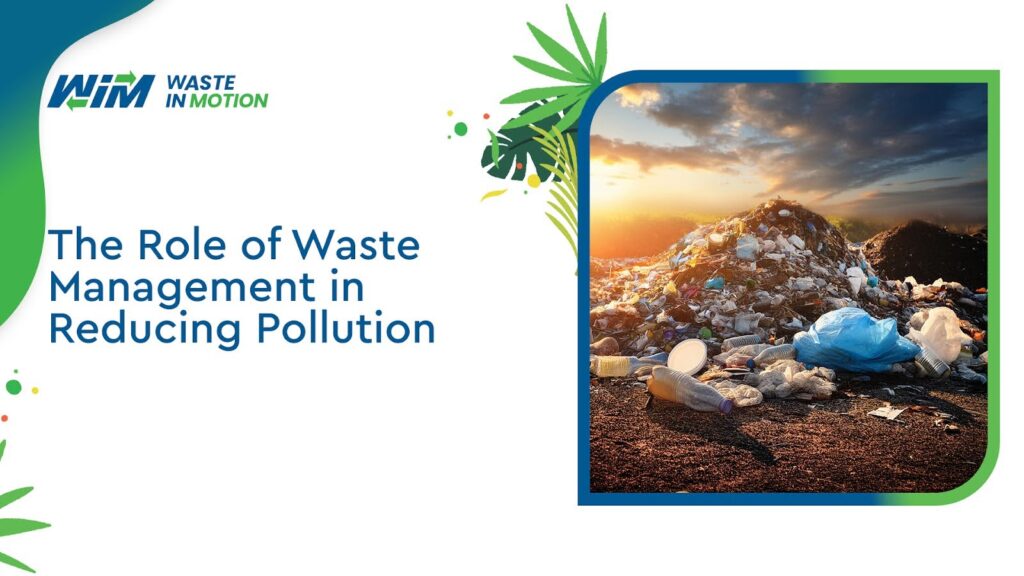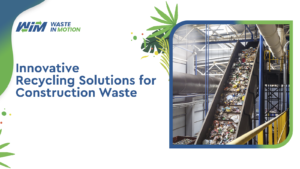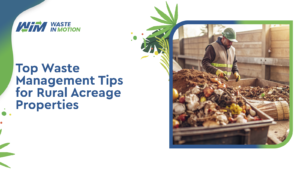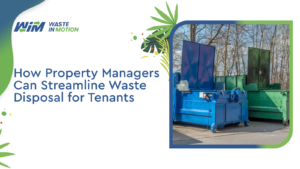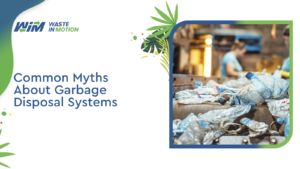Waste management is an important component in combating pollution. Implementing effective waste management practices can significantly reduce various forms of pollution and create a healthier environment.
Let’s explore the relationship between waste management and the reduction of pollution, with core practices and technologies integral to the effort.
Table of Contents
ToggleUnderstanding Pollution
What is Pollution?
The term “pollution” describes the release of dangerous materials or goods into the environment. These contaminants have the potential to harm wildlife, people, and natural ecosystems through their effect on the air, water, and soil.
Types of Pollution
-
Air Pollution
Air pollution is caused by emissions of pollutants such as carbon dioxide, sulfur dioxide, and particles into the atmosphere. The main sources are industrial emissions, vehicle emissions, and fossil fuel combustion.
-
Water Pollution
Water pollution occurs when harmful substances enter water bodies and make the water unsafe for drinking, fishing, and other activities. Common contributors include industrial waste, agricultural runoff, and sewage discharge.
-
Soil Pollution
Soil pollution is the pollution of soil with toxic chemicals, often due to industrial activities, improper disposal of waste, and the excessive use of pesticides and fertilizers.
Impact of Improper Waste Disposal
Improper waste disposal significantly contributes to environmental pollution. When waste is poorly managed, it releases dangerous chemicals and toxins into the air, water, and soil. For instance, plastic waste in oceans harms marine life, while burning waste releases toxic gases that pollute the air. Similarly, landfills that are not properly managed can leach hazardous substances into the groundwater, causing long-term soil and water contamination. Implementing effective waste management practices, including the use of Moloks for efficient waste collection, can mitigate these issues.
Waste Management Practices
Proper waste management practices need to be adopted with a view to bringing pollution under control; among them are:
- Waste Segregation
Separating waste at the source into recyclable, organic, and hazardous categories.
- Recycling
It is the process of repurposing waste materials to create new goods while lowering pollution and raw material requirements.
- Proper Disposal
Making sure that non-recyclable waste is disposed of safely and sustainably.
- Use of Waste Containers
To manage waste efficiently, use front-load dumpsters and roll-off dumpster bins, which are suitable waste containers.
Recycling and Reuse
Through recycling, we are able to reduce the amount of waste taken to landfills and reduce the extraction of raw materials. For instance, paper recycling can save trees and plastic recycling can limit the generation of fresh plastic, thereby reducing pollution.
For more details on recycling practices, check out Waste in Motion’s recycling services.
Composting and Management of Organic Waste
Composting helps to manage organic waste such as food scraps and yard waste properly. Composting allows nature’s decomposing actions on such organic wastes so that they can be turned into useful compost, and reapplied to improve the soil. It will decrease the amount of organic waste sent to landfills and minimize the generation of methane gas, a potent greenhouse gas.
Hazardous Waste Management
Hazardous waste disposal means preventing any kind of environmental pollution. hazardous waste such as chemicals, batteries, and medical wastes, among others, have elements that may pose a risk to human health and the environment. Methods of disposal should range from specialty treatment plants to roll-off dumpster bin rentals designed especially for hazardous waste.
Innovative Waste Management Technologies
Emerging technologies are currently revolutionizing waste management and assisting in the reduction of pollution. Waste-to-energy plants, advanced recycling technologies, and smart waste management systems are some of the innovations that make waste disposal more efficient and friendly to the environment.
Role of Government Regulations
Government regulation plays a big role in the formation of practices for waste management and pollution control. Policies and laws can be enforced to facilitate the correct disposal of waste, increased recycling, and a reduction and safe disposal of hazardous waste. It is important that businesses and individuals comply with these set regulations and standards at all times. Effective waste contract management ensures compliance with these regulations.
Community Involvement
Community participation plays a crucial role in the management of waste. Public awareness campaigns community recycling programs and local initiatives have massive importance in the reduction of pollution. Cooperative work from the communities enables the actualization and implementation of proper waste management techniques to ensure a cleaner environment.
Check community solutions for waste management under community initiatives by Waste in Motion.
Case Studies and Success Stories
Following are real-world examples of successful waste management programs that have significantly reduced pollution:
Sweden’s Waste-to-Energy Program
Sweden has become a global leader in waste management through its innovative waste-to-energy program. By incinerating waste to produce energy, Sweden has reduced landfill waste to less than 1% of its total waste production. This approach not only generates electricity but also significantly reduces environmental pollution.
San Francisco’s Zero Waste Initiative
San Francisco’s ambitious zero-waste initiative aims to divert all waste from landfills by 2020. Through rigorous recycling programs, composting, and community education, the city has achieved an impressive 80% waste diversion rate. This success story demonstrates the power of comprehensive waste management strategies in reducing pollution.
Japan’s Recycling and Resource Recovery
Japan’s extensive recycling and resource recovery programs have made it a model for waste management worldwide. The country recycles approximately 77% of its plastic waste, reducing the impact of plastic pollution on the environment. Japan’s approach emphasizes the importance of recycling and reusing materials to combat pollution effectively.
Conclusion
Proper waste management is essential for the avoidance of pollution and the conservation of the environment. Recycling, reusing materials, and the safe disposal of hazardous waste are necessary for a cleaner and healthier world. Other things like innovative waste management technologies, government regulations, and involvement of the community also make a major difference.


